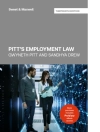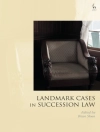In developing her conception of structural injustice, Iris Marion Young made a strict distinction between large-scale collective injustice that results from the normal functions of a society, and the more familiar concepts of individual wrong and deliberate state repression. Her ideas have attracted considerable attention in political philosophy, but legal theorists have been slower to consider the relation between structural injustice and legal analysis. While some forms of vulnerability to structural injustice can be the unintended consequences of legal rules, the law also has potential instruments to alleviate some forms of structural injustice.
Structural Injustice and the Law presents theoretical approaches and concrete examples to show how the concept of structural injustice can aid legal analysis, and how legal reform can, in practice, reduce or even eliminate some forms of structural injustice. A group of outstanding law and political philosophy scholars discuss a comprehensive range of interdisciplinary topics, including the notion of domination, equality and human rights law, legal status, sweatshop labour, labour law, criminal justice, domestic homicide reviews, begging, homelessness, regulatory public bodies and the films of Ken Loach. Drawn together, they build an invaluable resource for legal theorists exploring how to make use of the concept of structural injustice, and for political philosophers looking for a nuanced account of the law’s role both in creating and mitigating structural injustice.
Cuprins
List of contributors
Preface and acknowledgements
Introduction
Jonathan Wolff and Virginia Mantouvalou
1 On dominated dominators
Lea Ypi
2 ‘Cruel optimism’: the limits of legal liability as a tool for engaging with structural injustice
Colm Ó Cinnéide
3 Structural injustice and the law: a philosophical framework
George Letsas
4 The law’s contribution to deliberate structural injustice: the case of the global garment industry
Maeve Mc Keown
5 Segmented labour markets, structural injustice and legal remedies
Hugh Collins
6 Freedom of association and structural injustice
Alan Bogg
7 Criminal justice and social (in)justice
Nicola Lacey
8 Interrogating responsibility, agency and (in)justice in domestic abuse suicides
Vanessa E. Munro
9 Structural injustice and human rights: the case of begging
Virginia Mantouvalou
10 Structural injustice, homelessness and the law
Beth Watts-Cobbe and Lynne Mc Mordie
11 Structural injustice and the regulatory public body landscape
Jude Browne
12 Free or unfree? Depicting structural injustice in courtrooms and in film
Guy Mundlak
Index
Despre autor
Jonathan Wolff is Alfred Landecker Professor of Values and Public Policy, Blavatnik School of Government, University of Oxford and Governing Body Fellow, Wolfson College Oxford.












